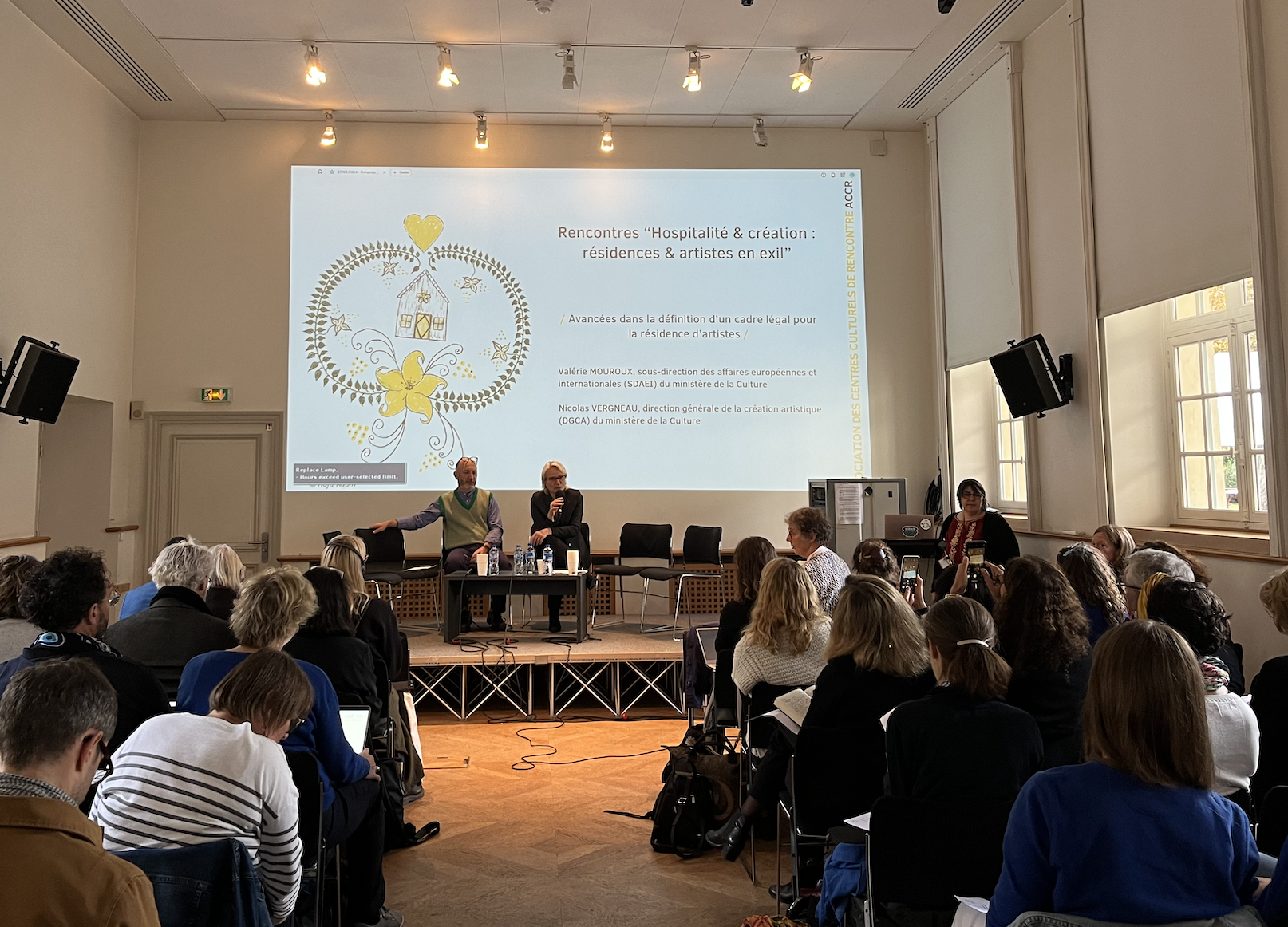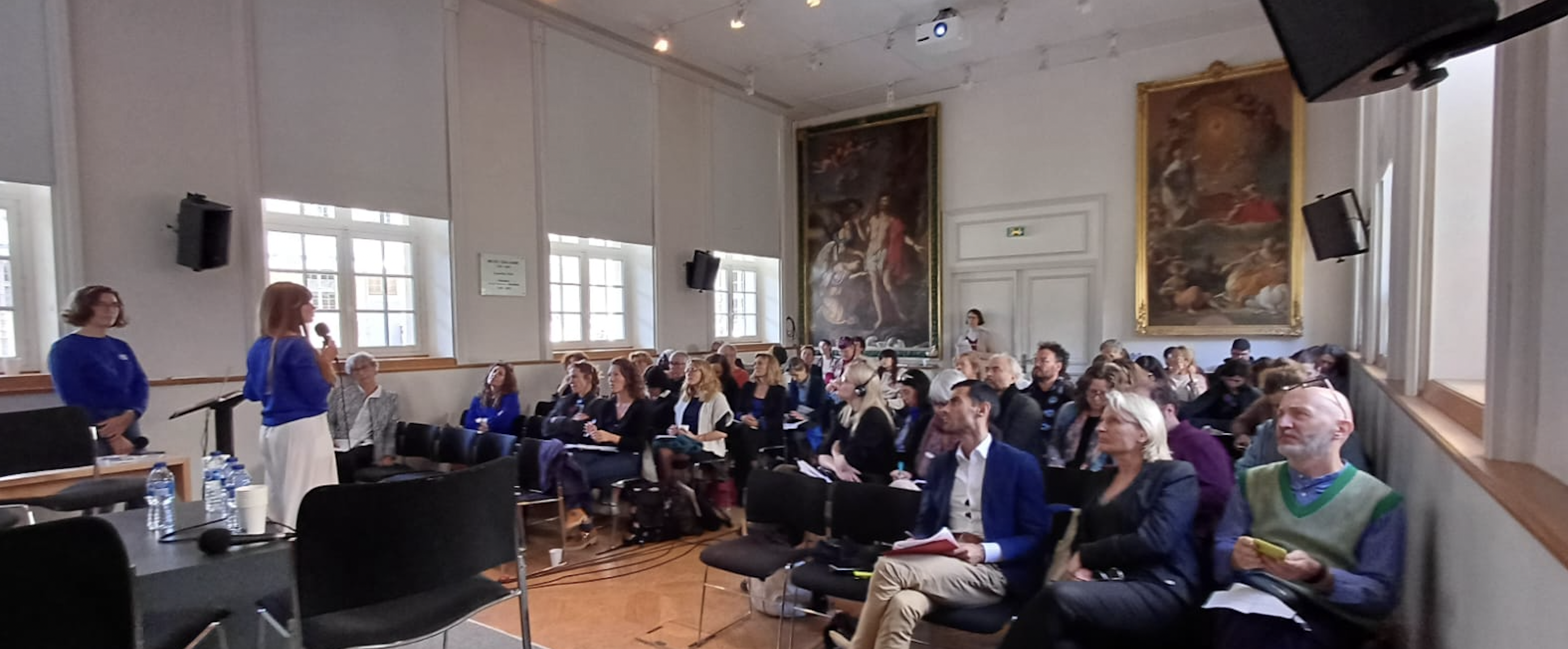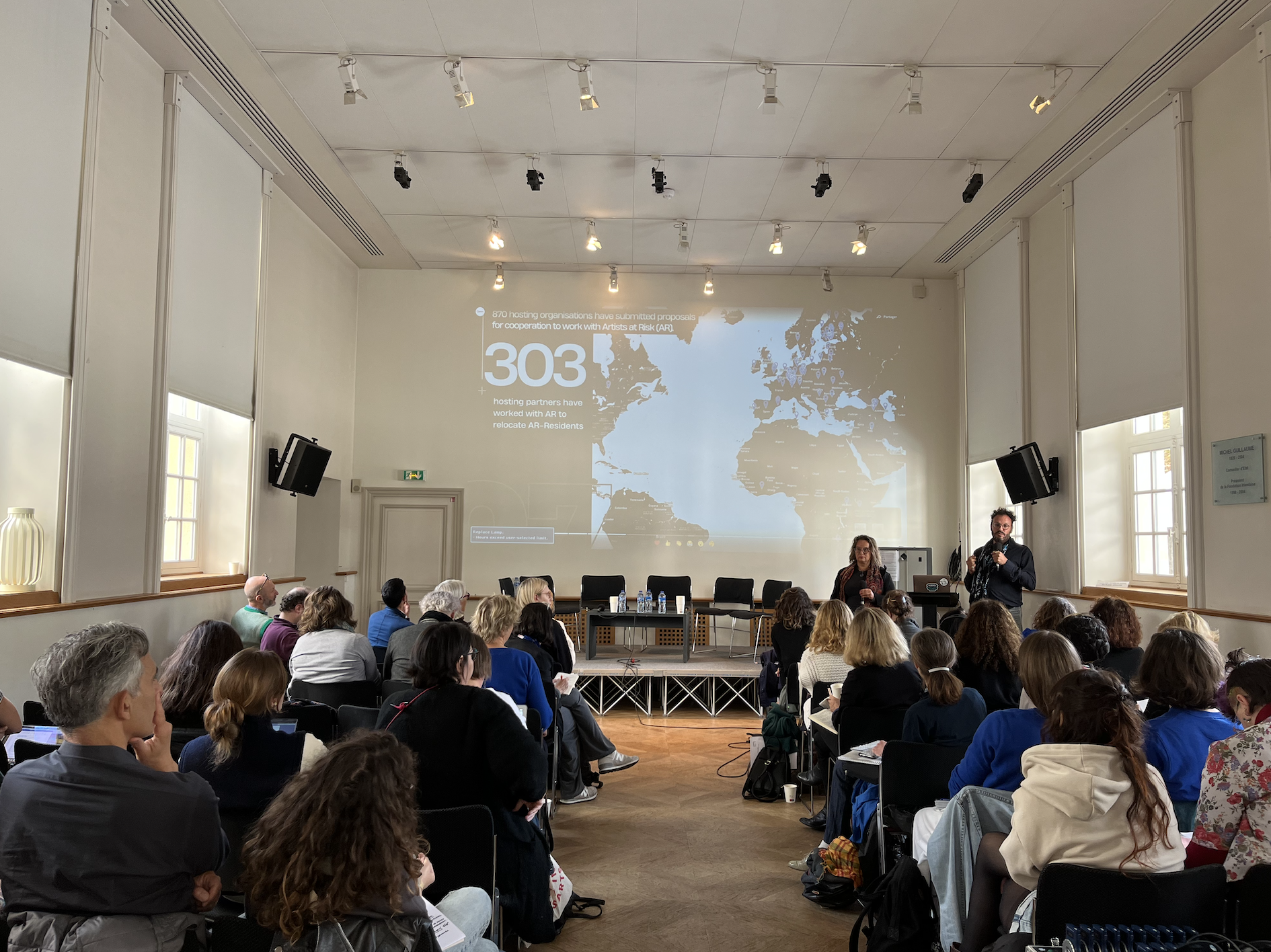On 27 September 2024, the second edition of the ‘Hospitality & Creation’ meeting was held at the Irish Cultural Centre. Organised by the ACCR, this inter-professional day looked at the support given to refugee artists and cultural professionals in France, both during and outside the residency period.
As well as presenting various residency programmes and venues hosting artists, and sharing the experiences of award-winning residents of the Nora programme, political considerations were also discussed.
Interministerial policy on the question of hosting /
The proliferation of crises of various kinds has made it necessary to think globally about reception in order to offer places of refuge. A network of players and organisations are already working on this issue at national level: the Maison des Journalistes, the Pause, Courants du Monde and Résidence Culture programmes, the Maison Internationale des Arts, Artists in Exile, the ACCR network, etc. Depending on geopolitical developments, these players are also called upon to respond to emergency situations.
These residency programmes meet increasingly well-defined criteria, and at the same time are developing charters of good practice that set out certain common guidelines between the host organisation and the resident.
For more information on artists' residencies in France, please refer to the IGAG report published last summer.
National experiments in progress:
The ‘Better production, better distribution’ plan promoted by the Ministry of Culture concerns all sectors of the performing and visual arts and aims to streamline production and distribution in these fields. In particular, there is a desire to encourage co-productions and pooling of resources, as well as to extend the distribution of works and encourage touring. The plan will be informed by feedback from the field, with a view to developing the circular on which this project is based.
In a research-action format, the DRACs are experimenting with ‘green’ residencies, offering support to artists in their efforts to make an ecological transition. The project is based on cooperation between an artist, a professional involved in the ecological transition and a host venue, who, during a residency, are examining their practices with a view to reinventing them and adapting them to environmental challenges.
Explanation of the immigration law /
By way of introduction, Lucie Feutrier-Cook, a consultant in migration and asylum law and CNDA assessor judge for UNHCR, emphasised that France was not under migratory pressure, as some politicians and the media had claimed. The judge was also keen to add that the new immigration law is contrary to fundamental human rights. The proliferation of legislation in this area makes the rules unreadable and unsafe for both the people concerned and those who have to enforce them, and the aim of this speech was to dissect the main principles.
Of the eight titles in the body of this law, very few are devoted to integration compared with immigration control. Many of the measures relating to immigration control feed into a discriminatory system, such as making language level a condition, whereas previously it was attendance at language classes that was required. Now you have to sit and pass an exam.
While the Geneva Convention, an international commitment, sets out the rights and protections granted to refugees, immigration management varies from country to country. Under this new law, the conditions under which asylum seekers are received during the asylum procedure have been made much more precarious.
Among the points to be redefined, asylum seekers should be given the opportunity to work as soon as their application is submitted, which is not currently the case. The material reception of asylum seekers should also be rethought: they should have access to dignified accommodation without discrimination, enjoy the same legal and social support in order to prepare to speak before the decision-making committee, anticipate summonses more, rethink the territorialisation of the national court for the right of asylum, etc.
You can find out more about the path taken by asylum seekers and the referring bodies by consulting this resource file.



